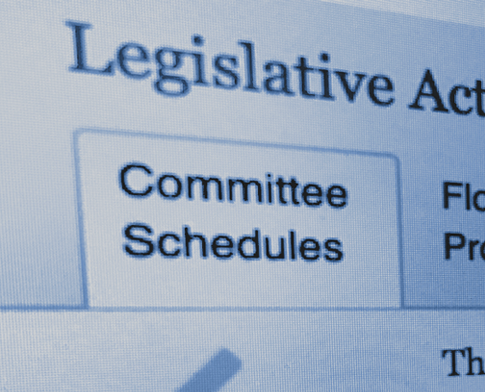Health Update (October 28)
Two House Ways & Means markups this week headlined healthcare news, Speaker Nancy Pelosi’s drug pricing plan, H.R. 3, and H.R. 4742, which would impose a tax on nicotine used in vaping. Additionally, CMS Administrator Seema Verma made her first appearance before the House, where Energy & Commerce Committee Democrats grilled her for the administration’s attacks on the Affordable Care Act (ACA). The Republican Study Committee (RSC) also released their healthcare proposal that would repeal major parts of the ACA, and is also likely to be used as a tool for Republican congressional candidates in the upcoming 2020 elections.
Markups & Hearings
Ways & Means Markup on H.R. 3
The House Ways & Means Committee held a markup on Tuesday (Oct. 22) on H.R. 3, The Lower Drug Costs Now Act of 2019, along with four other bills; H.R. 3398, The Pathways to Health Careers Act of 2019; H.R. 4650, The Medicare Dental Act of 2019; H.R. 4665, The Medicare Vision Act of 2019; and H.R. 4618, The Medicare Hearing Act of 2019. The House Ways and Means Committee passed an updated version of Speaker Nancy Pelosi’s drug pricing package on a party-line vote. Democrats on the committee supported the Pelosi package after an attempt by Rep Lloyd Doggett (D-TX) to make the bill more aligned with the progressive side of the caucus. Democrats also expressed their support for directing the $345 billion in savings from the government drug price negotiations required by the plan for new dental, vision and hearing benefits for Medicare beneficiaries. Ways and Means Republicans proposed more than two dozen amendments, almost all of which failed on party-line votes. The GOP made multiple attempts to exclude drugs for specific disease areas such as cancer and Alzheimer’s from government drug price negotiations. They also proposed a series of amendments that would mandate the HHS Secretary certify that the bill is not hindering new drug development or patient access to medicines. The Republicans argued the Speaker’s drug proposal is an example of government overreach in a successful program and will hamper pharmaceutical innovation, ultimately hurting Americans as they get access to fewer drugs. Multiple members on the committee urged the Chairman to consider a bipartisan path forward, and opposed H.R. 3 out of a desire to start over and push for a redesign of the Medicare Part D program that works better for patients. To read an executive summary of this markup, click here.
Ways & Means Markup on Vaping Legislation
The House Ways & Means Committee also held a markup on Wednesday (Oct. 23) on H.R. 4742, “To amend the Internal Revenue Code of 1986 to impose a tax on nicotine used in vaping, etc.”; H.R. 4716, The Inhaler Coverage and Access Now (I CAN) Act; H.R. 1922, The Restoring Access to Medication Act of 2019; and H.R. 3708, The Primary Care Enhancement Act of 2019. H.R. 4742 was the only bill that warranted any major debate amongst the members of the committee. Although Democrats and Republicans largely agreed that youth vaping is a serious issue, the latter argued that this bill was not a reasonable solution to the issue. Republicans argued that levying an excise tax on nicotine vaping products, without also addressing marijuana or flavored vaping, would be counterproductive. Republicans requested the Chairman go through regular order with the appropriate hearings to better address this issue. The bill was passed through committee, largely on party lines. The other three bills were largely passed favorably by the committee with little contention or debate. To read an executive summary of this hearing, click here.
House E&C Dems Grill CMS Administrator Verma
The House Energy & Commerce Subcommittee on Oversight & Investigations held a hearing on Wednesday (Oct. 23) entitled: “Sabotage: The Trump Administration’s Attack on Health Care.” CMS Administrator Seema Verma testified before the Committee in her much anticipated first appearance before the House Democratic Majority. The Committee focused on the regulatory actions the Administration has taken to reform the individual health insurance market. Democrats, led by Chairwoman Diana DeGette (D-CO), grilled Administrator Verma on the Trump Administration’s criticism of the Affordable Care Act (ACA) and the lack of a replacement plan pending Supreme Court action to potentially trike down the law in the Texas vs. Azar case. Democrats highlighted the increase in uninsured Americans since the beginning of the Trump Administration and pointed to reports showing more than one million children have lost coverage since President Trump took office. Committee Republicans fought back and apologized to the Administrator for the Democrats’ pointed remarks. The Republicans pointed to a recent CMS report that showed ACA premiums expected to be down 4% in the upcoming year, the failures of navigators in the current system, and the over 90% satisfaction rate of their call centers. To read an executive summary of this hearing, click here.
RSC Healthcare Proposal
Earlier this week, The Republican Study Committee (RSC) released a health plan that would repeal major parts of the ACA, standing in contrast to Democrats’ plans to build on it or move to single-payer health care. The GOP proposal would direct sicker Americans into state-run risk pools and would end the health law’s Medicaid expansion and repurpose Medicaid expansion dollars into state and federal block grants. The RSC plan would get rid of most all the ACA’s coverage requirements and guarantees. It would eliminate the ACA’s 10 essential health benefits, medical loss ratio, annual lifetime limits, preventative cost-sharing, dependent coverage, community rating, age-banding and single risk pool requirements. The plan also would allow individuals to use Health Savings Accounts to pay for premiums on the individual marketplace and would no longer require that HSAs be linked to high deductible plans. Under the plan, individuals with high-risk medical conditions would have access to state-run “Guaranteed Coverage Pools,” which would function a lot like the pre-ACA high-risk pools and health costs would be subsidized with federal grants and state-enacted premium restrictions. Plans would not be allowed to increase the cost of care because a person develops a medical condition after enrollment, the study committee says. States would not be required to operate Guaranteed Coverage Pools, but if they did could design them however they wanted. These pools could resemble the high-risk pools that existed before the ACA, invisible high-risk pools, or even operate similarly to a reinsurance program if the state desired. The GOP plan would also undo Medicaid expansion, and would provide states with federal grants to assist in providing low-income individuals health care. These grants would derive from what was Medicaid expansion funding and would repackage the ACA’s premium subsidies. The plan also would expand health insurance ministries and talks up the benefits of the Trump administration’s short-term health plans and association health plans. [1]
References
[1] Cohen, Ariel. “Republican Study Committee Health Plan Eliminates Most ACA Protections.” 22 Oct. 2019. Inside Health Policy. https://insidehealthpolicy.com/daily-news/republican-study-committee-health-plan-eliminates-most-aca-protections
HOUSE.GOV
The Week Ahead
For the main events of the next week and more, go straight to the key events on the house.gov website.
SENATE.GOV
The Week Ahead
For the main events of the next week and more, go straight to the key events on the senate.gov website.


